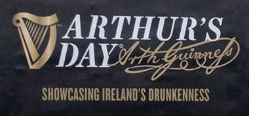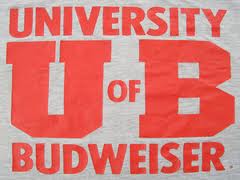In the Doghouse
In the Doghouse: Walmart's Plan: Dominate Beer Sales, Steamroll Public Health
October 29, 2013
 |
Walmart is already the nation's biggest beer retailer, but corporate greed knows no bounds. The company recently announced its strategy to double beer sales by selling it as a loss-leader and accosting shoppers with in-your-face, floor-to-ceiling stacks of cases. Walmart joins mega-retailers such as Costco and Amazon, bent on using cheap alcohol to lure customers and keep the profits flowing. Drowning the masses in super-cheap alcohol comes at a huge economic, health and social cost, and the mega-retailers or alcohol producers are not paying even close to their fair share of the tab for alcohol-related injuries, diseases, and deaths.
Cheap alcohol prices encourage excessive drinking and youth consumption, and undermine pricing recommendations to prevent those very same public health problems. High alcohol prices reduce violent crime, traffic crashes, disease, and mortality. Youth are particularly sensitive to beer pricing, and Walmart's planned mountains of cheap Bud Light, the underage youth brand of choice, fly in the face of the U.S. Surgeon General's recommendation to eliminate low-price, high-volume alcohol availability to prevent underage drinking.
The economic havoc of excessive alcohol consumption is staggering. Alcohol-related harm from excessive consumption directly costs U.S. federal, state and local governments $94 billion annually, running about $0.80 per drink. Alcohol excise taxes cover about $0.15 of this cost, while taxpayers bear the remaining $0.65. Walmart, other retailers, and the rest of the industry rake in the profits, while taxpayers subsidize the costs.
Walmart's pricing strategy is an unacceptable assault on public health and safety. Raising the price of alcohol by increasing taxes is the most effective policy to mitigate the public cost of cheap alcohol. Unless policymakers increase the price of alcohol, taxpayers and their families will pay the tab while Walmart and alcohol producers reap ever-increasing profits, and the alcohol-related harm continues.
Diageo's fake Irish "Alcoholiday" to sell Guinness
October 10, 2013
 |
In 2009, Diageo, the British multinational which owns Guinness, created “Arthur’s Day," named for the brewery's founder, Arthur Guinness, to mark the 250th anniversary of the the eponymous brand. The event is supposedly a national cultural celebration of Irish music and heritage, but in reality a cynical marketing tactic to boost beer sales. Of course, the irony of a British conglomerate buying up an Irish brand and then using Irish pride to sell them the beer was not lost on us. Apparently it wasn’t lost on many Irish musicians and journalists, who began voicing their disgust at Diageo’s PR scam preceding this year’s event and calling for a boycott.
More concerning is the reported 30% increase in ambulance calls in Dublin and 2,000 hospital admissions nationwide for alcohol-related illness after the 2012 Arthur’s Day, directly resulting from mass binge drinking. Diageo encourages nationwide drinking by raising a Guinness in Arthur’s name just before 6 p.m. As concern about alarming rates of binge drinking and alcohol-related harm in Ireland escalate, Diageo capitalizes on the country's vulnerabilities to sell more beer.
Diageo’s response to the criticism is even more outrageous. They claim they are addressing complaints about the damage and chaos by stepping up promotion of “responsible” drinking on Arthur’s Day, a clever way to promote drinking while absolving themselves of responsibility for the harm caused by a national day of binge drinking that they created.
A-B InBev Offers Beerology at University of Illinois
September 17, 2013
 |
As if it weren't enough that the University of Illinois at Urbana-Champaign is number 3 on the list of top party schools, apparently Anheuser-Busch InBev wants students to major in beer as well. The company is opening a new Bud Lab at the campus, where student interns will learn how to use data to promote the corporation's portfolio of leading beer brands.
This partnership of Big Alcohol and public educational institutions is not the first, but it represents a disturbing trend. Excessive drinking on college campuses is already a public health disaster. Allowing corporations such as A-B InBev, MillerCoors, or Diageo to infiltrate educational content and promote their brands as part of the institution gives them an air of legitimacy. It also sends a message to students, parents, faculty, and alumni that alcohol corporations are beneficent, and their products harmless - when in reality, excessive alcohol consumption causes 80,000 deaths and $223.5 billion in economic harm in the U.S. each year.
Accepting funding and sponsorship from Big Alcohol is also a conflict of interest for higher education. Colleges and universities that accept large gifts from alcohol companies lose the autonomy to make and enforce the most effective policies to prevent alcohol-related harm on their campuses, such as limiting access and availability of alcohol. The presence of a corporate alcohol sponsor on campus also discourages academic freedom to present educational content that sheds light on alcohol-related harm and questionable corporate practices.
The UI Urbana-Champaign should reconsider its misguided decision to let A-B InBev sponsor its curriculum. Other universities should pay attention and not sell out their autonomy, academic freedom, and student health to Big Alcohol.
More Articles ...
Help us hold Big Alcohol accountable for the harm its products cause.
| GET ACTION ALERTS AND eNEWS |
STAY CONNECTED    |
CONTACT US 24 Belvedere St. San Rafael, CA 94901 415-456-5692 |
SUPPORT US Terms of Service & Privacy Policy |


